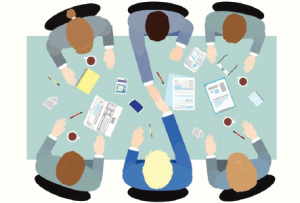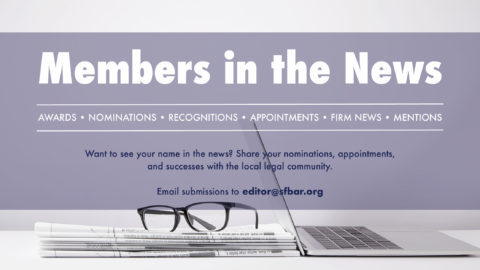 In March 2015, The Bar Association of San Francisco’s Alternative Dispute Resolution department will hold its annual Mediation Certificate Training. Over five successive Saturdays, participants will gain the tools they’ll need to be effective mediators.
In March 2015, The Bar Association of San Francisco’s Alternative Dispute Resolution department will hold its annual Mediation Certificate Training. Over five successive Saturdays, participants will gain the tools they’ll need to be effective mediators.
I recently had the opportunity to speak with course creator Ron Kelly, a nationally-recognized mediator, arbitrator, and trainer. Over the course of his thirty years in practice, he’s played a key role in drafting and enacting many of the current California laws protecting the integrity of mediation and arbitration. Our discussion focused primarily on the attributes of an effective mediator, and the principal value of mediation as an alternative to litigation.
Larry Lindsey (LL): Can you give me a quick profile of the ‘ideal’ mediator – his or her educational/professional background, personality, skills, etc.?

Ron Kelly (RK): Mediators come from a wide variety of different disciplines and professions. One of the central aims of this training is cultivating mediators adept at combining three distinct skill sets:
- the lawyer who understands the case made on behalf of each potential litigant, and their evidence and applicable law;
- the psychologist/counselor, who understands the strong emotions that often drive continuing litigation and block resolution, and has the skills to work effectively with them; and
- the deal-maker, who can balance competing interests, take advantage of common interests, and patiently craft a voluntary settlement that’s a better choice for all disputants than continuing the litigation.
LL: To what extent do you feel these skills are teachable/ learnable?
RK: Thousands of my former training participants have found they could learn them. I credit my dear colleague Dana Curtis with giving us the phrase “empathetic skills.” We both believe empathy can be learned, and believe it’s crucial for mediators. After decades of mediating, it’s clear to me that most disputants are only able to listen to the other side after they themselves feel heard. Making people feel heard is a skill you can learn. So is deal-making, the art of seeing through the fog of conflict to the various elements of a potential agreement.
LL: In your opinion, wherein lies the value of mediation as opposed to litigation? How would you sell someone on the idea of “a bird in hand” as opposed to the potential “two in the bush”?
RK: To me, the most important aspect of mediation is its value to society. Mediation reduces the damage we do to one another when we fight unnecessarily. Since you can normally walk away from a mediation and go on to court if you choose, it’s nearly always wise to see what your bird in the hand could be – the best voluntary settlement available – before you invest the money and take the risk of going on to court.
Learn more about the March 40 Hour Mediation Training.
Other upcoming trainings with Ron Kelly:
- April 24: Top Five Reasons Your Mediations Fail and How to Avoid Them
http://www.sfbar.org/calendar/eventdetail.aspx?id=ADR152034/ADR2038 - May 29: Want a Thriving Practice as a Mediator or Arbitrator?http://www.sfbar.org/calendar/eventdetail.aspx?id=ADR152040/ADR2038






0 comments on “Spring Mediation Training: A Conversation with Ron Kelly”